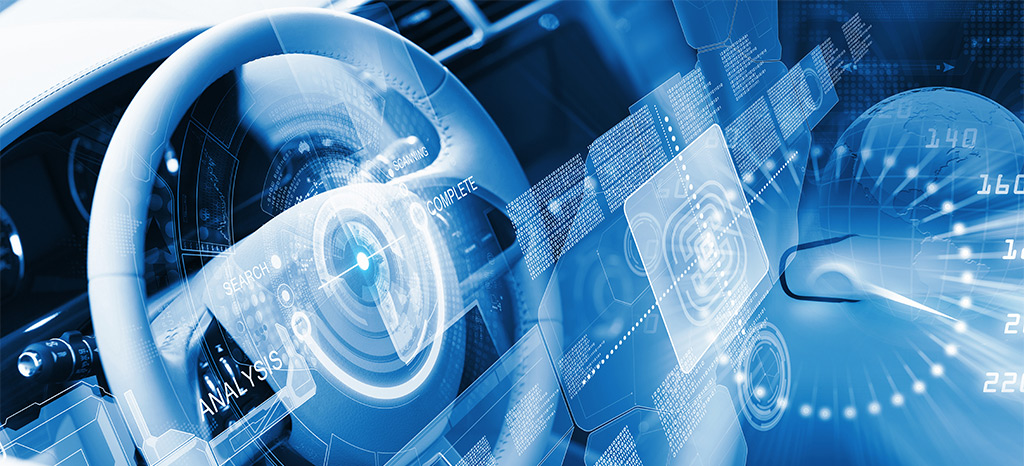-
-
-
-
URL copied!
User-centric design is essential to the dealer, workshop, and automotive brand’s ability to provide the best possible driving experience for the customer. It is vital to consider the sounds, smells, and feelings of the different interactions drivers may experience – such as the acceleration potential, for example – to provide the perfect driving experience.

As developers incorporate more software into the design model, there is greater potential to control the driver's experience. Software developers can help create a positive experience for drivers with the vehicle’s technology, such as the display screen, touch panel, sound equipment, and the comfort of the vehicle through temperature monitoring and ventilation.
Software developers can also provide active sound insulation, suspension steering, battery usage optimization, online services, and artificial intelligence to assist the driver. Once the vehicle is purchased, software can still assist the driver with remote updates such as new features or content updates, active safety setups, and updates for the communication technology that helps assess the driver's surroundings.
As the importance and quantity of a vehicle’s software increases, we must focus on what that would mean for the requirements, quality, and management of the vehicle’s software through its entire life cycle to ensure it maintains an efficient user-centric design. Therefore, to build a final plan for the necessary software components, the following software production phases need to be included:
- Architectural Design
- User Experience (UX) and User Interface (UI) Design
- Define Requirements and Engineering
- Software Development
- Testing and Maturation
- Integration, Scaling, and Maturation
- Support and Maintenance
Automotive companies constantly search for competitive advantages, innovative capabilities, and safer and more efficient ways to produce vehicles. As a result, automotive brands gain value through software-defined products and by creating additional R&D efforts to improve customer satisfaction and increase revenue and shares.
In recent years, GlobalLogic has begun incorporating a great deal of Human-Machine Interface (HMI) technology into automotive applications as it is the best way to assess the user's experience. Furthermore, the quantity of information displayed during a user's experience is constantly growing, increasing the complexity of UIs and making HMI a critical component of a car.
We work on the comprehensive process of HMI design and development, as well as complete advanced testing to ensure that the technology is user-friendly. We focus on memory consumption, startup time, frames speed and rendering acceleration, animations, speech recognition, voice control, face recognition, and eye-tracking or gesture recognition to optimize the HMI technology. We frequently equip display devices with augmented and virtual reality, as well.
All phases within a specific software domain require skilled engineering resources, specific equipment, labs, and sufficient safety and security. In addition, to satisfy the user's expectations and achieve software quality and reliability, the implementation process must be conducted under Automotive Software Performance Improvement and Capability determination (A-SPICE) standards, providing traceability and compliance with the industry's numerous regulations and trends.
Behind the visible pieces of software, we use multiple hardware platforms with software architectures for high scalability and algorithms modeled by Matlab or semi-automated code generated by AutoSar and MatLab. Typically, for this type of software, we use continuous development and integration techniques.
Finally, software developers validate all software components by hardware, software, or model-in-the-loop testing before testing the software on the road.
In conclusion, it is crucial to monitor and control software production throughout, to create the best possible user-centric experience and amplify the customer's experience with the automotive brand.

Let’s Work Together
Related Content
GenAI in Action: Lessons from Industry Leaders on Driving Real ROI
Generative AI (GenAI) has the potential to transform industries, yet many companies are still struggling to move from experimentation to real business impact. The hype is everywhere, but the real challenge is figuring out where AI can drive measurable value—and how to overcome the barriers to adoption. In the latest episode of Hitachi ActionTalks: GenAI, … Continue reading User Experience as a Key Factor in the Automotive Industry →
Learn More
World Usability Day: What is Usability and Why Does it Matter?
As technology becomes more and more integrated with our daily lives — from connecting with friends on Facebook to communicating with health care providers through IoTM devices — well-designed systems will be crucial to getting the information and services we all need.
Learn More
Share this page:
-
-
-
-
URL copied!